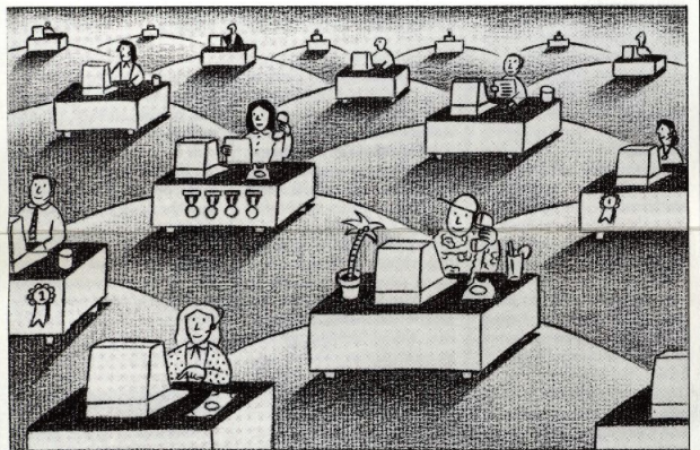
2021 Fall Conference
Registration for the conference is open!
Schedule
November 6, 2021
Panel 1: SELLING (9-10:15)
Sam Backer, The Johns Hopkins University
Counter Girls and Salesmen: The Intimate Practices of Sheet Music Consumption
Matthew Hollow, University of York
The Dark Side of Door-to-Door Selling: Jacob Factor, Stanley Spiro and the 'White Collar Bandits'
Comment: David Suisman, University of Delaware
Panel 2: TOUCHING (10:30-11:45)
Reggie Blaszczyk, University of Leeds
Sold on Softness: DuPont Synthetics and Sensory Experience
Stephanie Kolberg, Boston University
"Unhurriedly and Pleasantly in the Home": Avon's Affective Approach and its Connection to Contemporary ASMR Videos
Comment: Isabelle Held, Science History Institute
LUNCH: 11:45-1:00
Panel 3: SEX (1:00-2:15)
Donna Drucker, Colorado College
"Wonders for the Health of Women": Marketing Contraceptives in the Gilded Age and Progressive Era
Julie Johnson, University of California, Santa Barbara
Intimate Economies & Atlantic Crossings: Selling the Racist Cap to the American Women
Comment: Anne Boylan, University of Delaware
Panel 4: USING THE MAIL (2:30-3:45)
Jennifer Black, Misericordia University
"Letter Salesmanship": Direct-Mail Technologies and Techniques in the Early Twentieth Century
Maureen Thompson, Florida International University
"Dear Friend": Mail Order Seed Companies’ Customer Engagement Strategies, 1870-1920
Comment: Richard Popp, University of Wisconsin-Milwaukee
Panel 5: PERSONALITIES (4-5:15)
Cynthia Meyers, College of Mount Saint Vincent
"Such a Feeling of Intimacy": Familial Bonds and Eastman Kodak's Sponsorship of the Adventures of Ozzie and Harriet (1956-1961)
Nicole E. Weber, Rutgers University
"Be Lean with Jean": Jean Nidetch and the Intimacies of Weight Watchers
Comment: Brent Malin, University of Pittsburgh
-----------------------------------
Call For Papers
In today’s wired world, marketers have heralded their ability to use apps, social media, and other online spaces to forge relationships with consumers that feel truly personal. Such claims, however, are not new.
Marketplace transactions have long been mediated by forms of commercial intimacy that blur the line between the putatively public, rational world of commerce and the private, emotional realm of personal relations. From the warm handshake to the sentiment-laden ad campaign, business interests of all sorts – producers, service providers, distributors, retailers and others – have found ways to soften the profit motive’s harder edges by enveloping it with an aura of affinity. Over time, these tools of “goodwill” became even more crucial as markets expanded to include farther-flung buyers and sellers dealing in new and unfamiliar wares.
This conference will explore the broad theme of commercial intimacy from the mid 19th century to the late 20th century. We are particularly interested in scholarship that explores how intimacy worked, the technologies behind it, and the interplay between the business and the personal. What were the technologies behind industrialized forms of intimacy? How did commercial entities appropriate tools of intimacy to sell? How might the history of emotions change our understanding of advertising and persuasion? In turn, how did the terms of commercial intimacy influence interpersonal relationships outside of the realms of sales and marketing? Why do personal appeals work even among consumers who know they are being manipulated emotionally?
We are interested in original, unpublished, and historically-informed papers addressing the above and related topics, from the mid-1800s to the recent past and centered in the US, written from a range of disciplinary viewpoints, including but not limited to: history; communication; media studies; psychology; sociology; geography; advertising; marketing; graphic design; printing and publishing; and information studies. We especially encourage proposals that engage with the following themes, but are open to any work that falls within this call:
• the dynamics of face-to-face selling, including peddling, door-to-door sales, in-home product demonstrations, house parties, and promotional seminars. How do sellers establish intimacy with buyers in these varied settings and what varied forms does this intimacy take?
• the technologies of personalized solicitations, including direct mail, telemarketing, spam, mailing lists, databases, and other networked and mediated forms of individualized inquiry. What kinds of affective appeals—including the apparent lack of affect—are at work in these different attempts to reach out to potential customers? How do these forms of communication imagine or frame the individuals they address?
• the use of particular mediums, techniques, and genres through which commercial intimacy is performed, including the voice, body language, dress, manners, rhetorical styles, penmanship, and other forms of self-presentation. What are the affective aesthetics of different forms and genres of address and how do these map onto assumptions about identity, politics, or ideology?
• the emotional appeal of early celebrity “influencers,” endorsers, and spokespeople; approachable and humanized “brand ambassadors.” What does the association with a particular celebrity mean for a given product brand and how does this frame the consumers that the brand targets?
• the psychology behind ad slogans and promotional copy fostering personal relationships and/or loyalty. What is going on, or presumed to be going on, when consumers see themselves in or otherwise “buy into” a given brand identity?
• the practice of gift-giving in the commercial context, including greeting cards, business gifts, retail premiums, customer loyalty and rewards programs. What are the affective dimensions of such “loyalty” as framed within these exchange relations?
• the creation of community and identity within sales forces, buying clubs, and multi-level marketing enterprises. How might sales people come to see themselves as part of a larger affective community and what does this mean for the practice of selling a given product or brand identity?
Please submit proposals of no more than 500 words and a one-page C.V. to Carol Lockman at https://www.hagley.org/2021-fall-conference-abstract-submission by July 1, 2021. Conference presenters will be asked to submit complete versions of their conference papers by Oct. 15, 2021. The conference is planned as an in-person event but will adopt a virtual format if necessary. Presenters will receive lodging in the conference hotel and compensation for their travel costs. The conference organizers are planning an edited volume based on a selection of revised conference papers. The program committee is comprised of Brent Malin, University of Pittsburgh, Richard Popp, University of Wisconsin-Milwaukee; Wendy Woloson, Rutgers University-Camden; Roger Horowitz and Erik Rau, Hagley Library.
